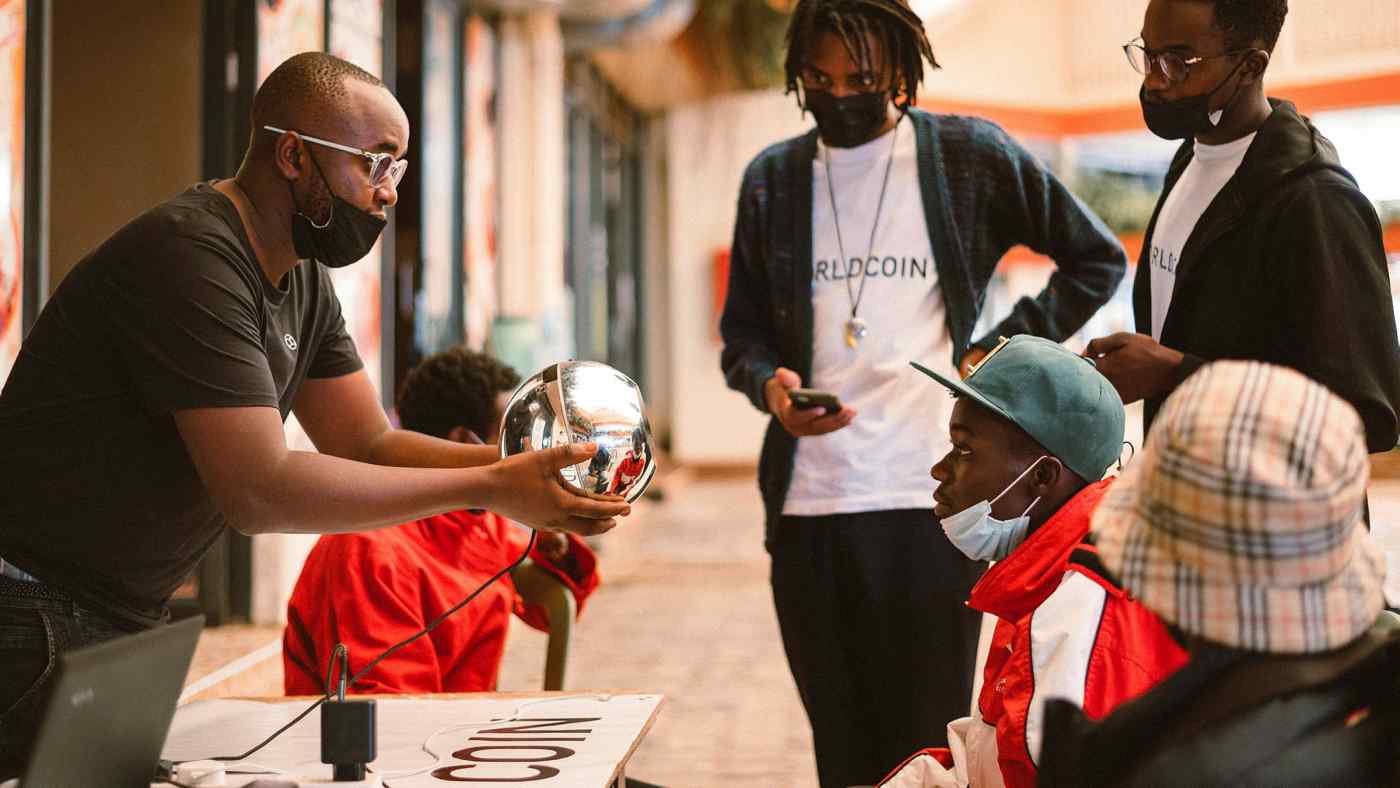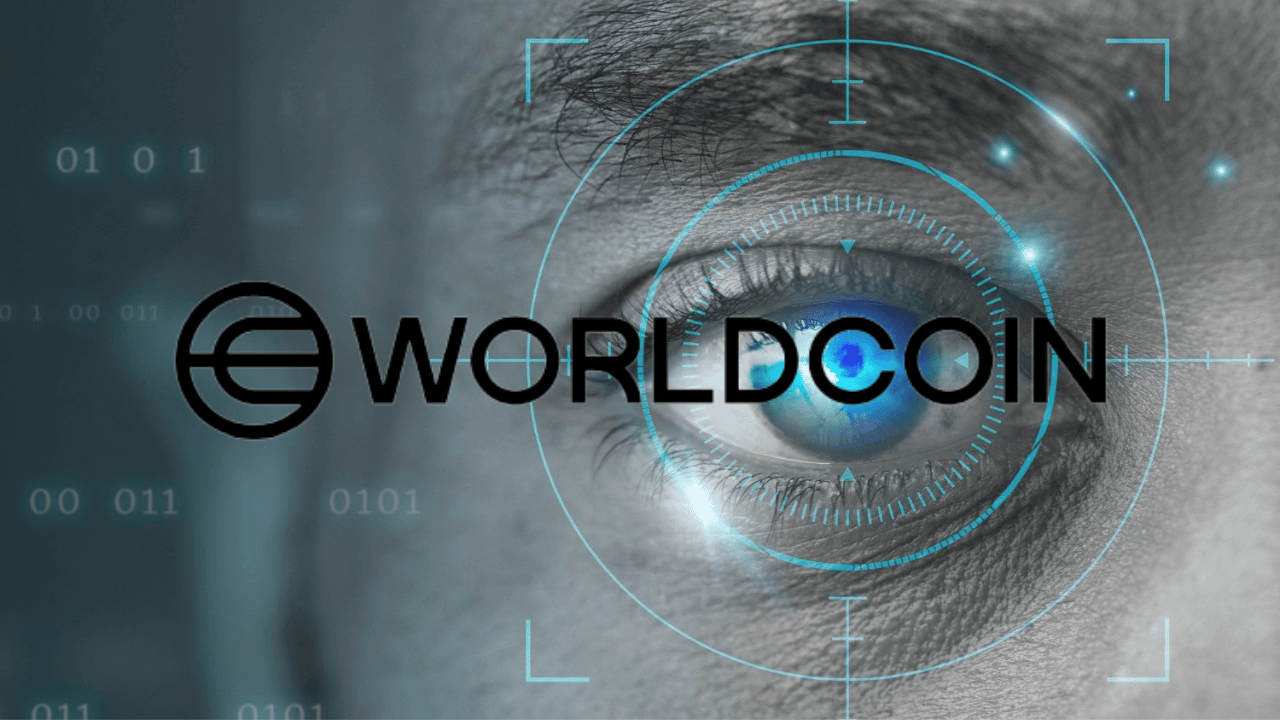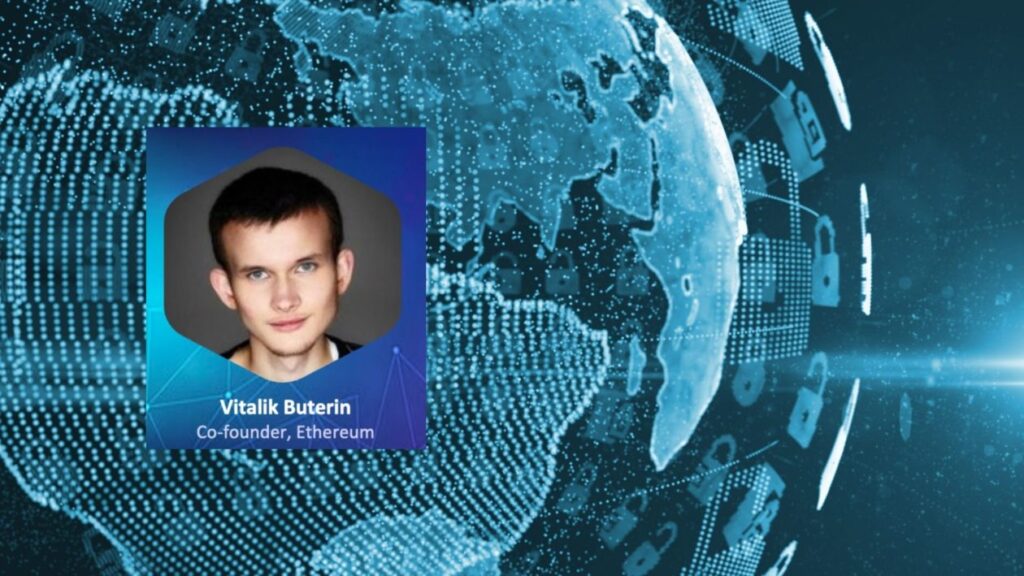Worldcoin is a cryptocurrency and digital identity project co-founded by OpenAI CEO Sam Altman, Alex Blania and Max Novendstern. It aims to address income inequality through its unique World ID feature, which will serve as “proof-of-personhood,” as described by Sam Altman. After two years in development and amid high anticipation, the project was launched on July 24, 2023.
As part of the promotion, early adopters were given an amount of cryptocurrency worth between $50 and $60, depending on the jurisdiction. Most of the countries where Worldcoin launched don’t widely use or accept crypto.
Further, $50 is a lot of money in developing countries where people are being asked to sign up, including Kenya, where the average monthly income is roughly $170.

Worldcoin is introduced to customers in Kenya
Meanwhile, some cryptocurrency experts have expressed concerns about this new coin, especially Ethereum Co-Founder Vitalik Buterin, highlighting four potential pitfalls of Worldcoin’s iris-scanning identity verification solution.
Buterin pointed to privacy, accessibility, centralization and security as the major risks associated with Worldcoin’s Proof-of-Personhood (PoP) construction and proposed an alternative solution to mitigate against them in a blog post on Monday.
PoP is a system designed to authenticate the uniqueness of a user in a decentralized way without relying on a central authority or revealing personal information. Use cases include avoiding Sybil attacks by preventing multiple account creation, event tickets, airdrops and DAO voting.
Worldcoin users install an app and have their irises scanned by a device called the “Orb.” The Orb verifies the user’s humanity and iris uniqueness, creating an iris hash. This process results in a unique “World ID” for each user, who can then prove their uniqueness without revealing their specific identity, ensuring privacy and security.
As the Worldcoin project involves iris scanning, it raises substantial privacy concerns, according to Buterin. Even though the system currently only stores hashed versions of iris scans, not the actual images, and aims to protect user identity with ZK-SNARKs and other cryptographic techniques, there is an inherent risk of identity-related information being misused or leaked, Buterin said. “At the very least, if someone else scans your iris, they can check it against the database to determine whether or not you have a World ID. Potentially, iris scans might reveal more information,” he added.

Buterin also had accessibility concerns, with users needing to physically access a Worldcoin Orb to participate, limiting the project’s reach. Unless enough Orbs were created so that anyone could easily access one, it could lead to an imbalance of Worldcoin distribution favoring urban centers where Orbs are likely to be more available. However, Worldcoin has previously highlighted phone number verification as an alternative to the Orb biometric imaging device.
The third risk Buterin put forward was centralization. The integrity of Worldcoin’s Orb hardware device construction can’t be verified, leaving the possibility of backdoors, Buterin said. Even if the software layer is decentralized, the Worldcoin Foundation has the potential to insert a backdoor and create fake human identities, he added. Worldcoin’s governance and proprietary algorithms are further centralization concerns, according to Buterin. Though, “to Worldcoin’s credit, they have also committed to decentralize over time,” Buterin added.
Finally, the security of the Worldcoin system was also a risk for Buterin. Phone hacking, coercion into scanning irises for someone else, selling or renting IDs and 3D-printed “fake people” used to dupe the scan for World IDs were examples of such risks, Buterin said. Though, these issues are not specific to Worldcoin’s solution.






